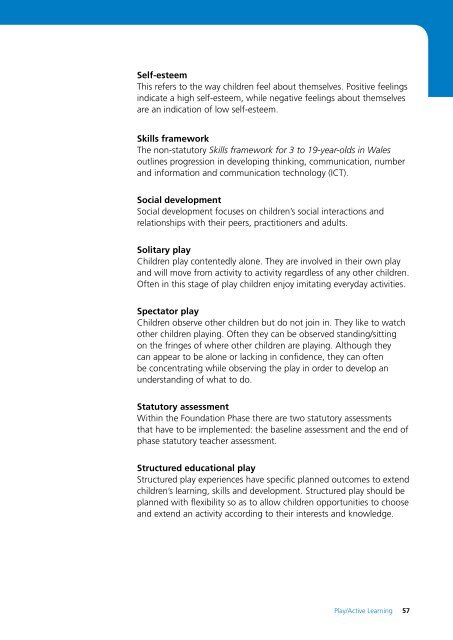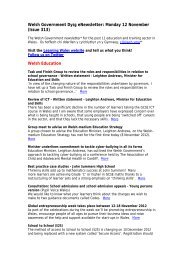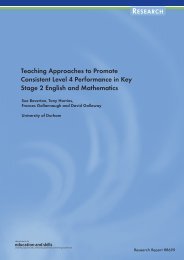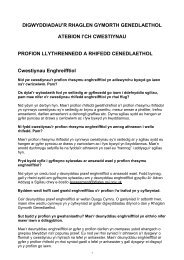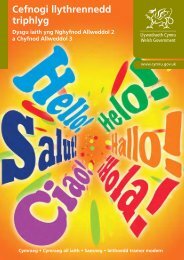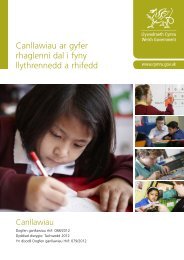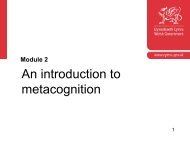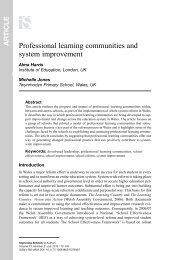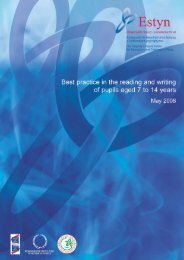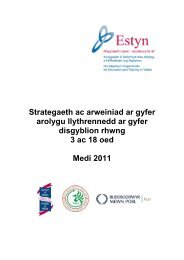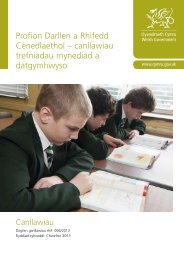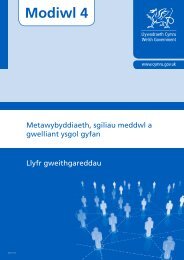Play/Active Learning
Play/Active Learning
Play/Active Learning
Create successful ePaper yourself
Turn your PDF publications into a flip-book with our unique Google optimized e-Paper software.
Self-esteemThis refers to the way children feel about themselves. Positive feelingsindicate a high self-esteem, while negative feelings about themselvesare an indication of low self-esteem.Skills frameworkThe non-statutory Skills framework for 3 to 19-year-olds in Walesoutlines progression in developing thinking, communication, numberand information and communication technology (ICT).Social developmentSocial development focuses on children’s social interactions andrelationships with their peers, practitioners and adults.Solitary playChildren play contentedly alone. They are involved in their own playand will move from activity to activity regardless of any other children.Often in this stage of play children enjoy imitating everyday activities.Spectator playChildren observe other children but do not join in. They like to watchother children playing. Often they can be observed standing/sittingon the fringes of where other children are playing. Although theycan appear to be alone or lacking in confidence, they can oftenbe concentrating while observing the play in order to develop anunderstanding of what to do.Statutory assessmentWithin the Foundation Phase there are two statutory assessmentsthat have to be implemented: the baseline assessment and the end ofphase statutory teacher assessment.Structured educational playStructured play experiences have specific planned outcomes to extendchildren’s learning, skills and development. Structured play should beplanned with flexibility so as to allow children opportunities to chooseand extend an activity according to their interests and knowledge.<strong>Play</strong>/<strong>Active</strong> <strong>Learning</strong> 57


